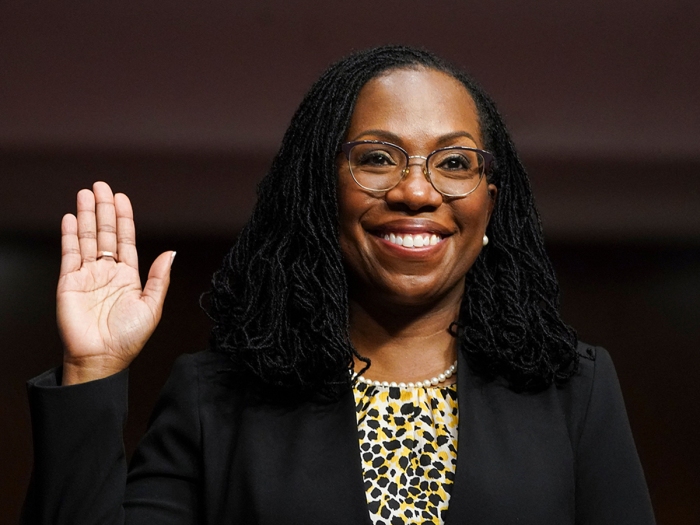
The U.S. Senate Judiciary Committee held confirmation hearings recently for Judge Ketanji Brown Jackson, President Joe Biden’s nominee to the Supreme Court. The hearings were historic in considering the unprecedented nomination of a Black woman to the nation’s highest court. The Senate confirmed Judge Jackson less than a year ago when Biden nominated her to the D.C. Circuit Court. If confirmed to the Supreme Court, she would replace retiring Justice Stephen Breyer, for whom Jackson formerly clerked.
Republican members of the Senate Judiciary Committee lobbed numerous aggressive political attacks at Judge Jackson during the hearings, including accusing her of promoting critical race theory, an academic approach to history that examines systematic racial injustices. Nadia Brown interpreted these attacks as Republicans “using this opportunity … to showcase their own partisan preferences” in an election year.
Brown is a professor of government, chair of the Women’s and Gender Studies Program, and affiliate in the African American Studies program at Georgetown University. She is also the lead editor of Politics, Groups, and Identities, a journal of the Western Political Science Association, and a founding board member of Women Also Know Stuff. Her expertise focuses on identity politics, legislative studies, and Black women’s studies. She spoke with YES! Racial Justice Editor Sonali Kolhatkar about Republicans’ aggressive questioning and about the significance of Judge Jackson’s nomination.
This interview has been edited for clarity and length.
Sonali Kolhatkar: How historic is this hearing, given that we’ve never had a Black woman be nominated to the Supreme Court, let alone be confirmed?
Nadia Brown: You’re exactly right. In the Supreme Court’s history of 115 judges, 110 have been White men. So, this is an enormous moment, just the fact that she may be able to serve on the Supreme Court if she gets through [the] confirmation hearings. There were countless other Black women who were qualified before her. So, this is much more of an indictment of the American political systems and institutions than it is to say that she isn’t qualified. There were people who were qualified way before her but just never got the nomination.
Kolhatkar: Since she is the nominee of a Democratic president, she is receiving pretty favorable questioning from Democratic senators. But the Republicans are grilling her. What do you make of the Republican line of questioning?
Brown: Some of this is to be expected and anticipated, particularly if we think about these hearings as more political theater than [people] actually trying to get to learn who the nominee is. What the Republicans and Democrats are trying to do is to push their own partisan agenda to see if this nominee will confirm or will push back from partisan labels like “Liberal” or “Conservative.”
Also, this is an election year—there will be midterms in November. So, these senators are also thinking about how their questioning is going to play into what campaign ads and attack ads are going to be for the midterm elections.
It’s also important to note that there are most likely people on the Judiciary Committee serving right now who will run for president in 2024. So, they’re using this opportunity as a way to have a platform, to grandstand, to showcase their own partisan preferences and their own political affiliations more so than interrogate Judge Ketanji Brown Jackson. Read the full article here.










